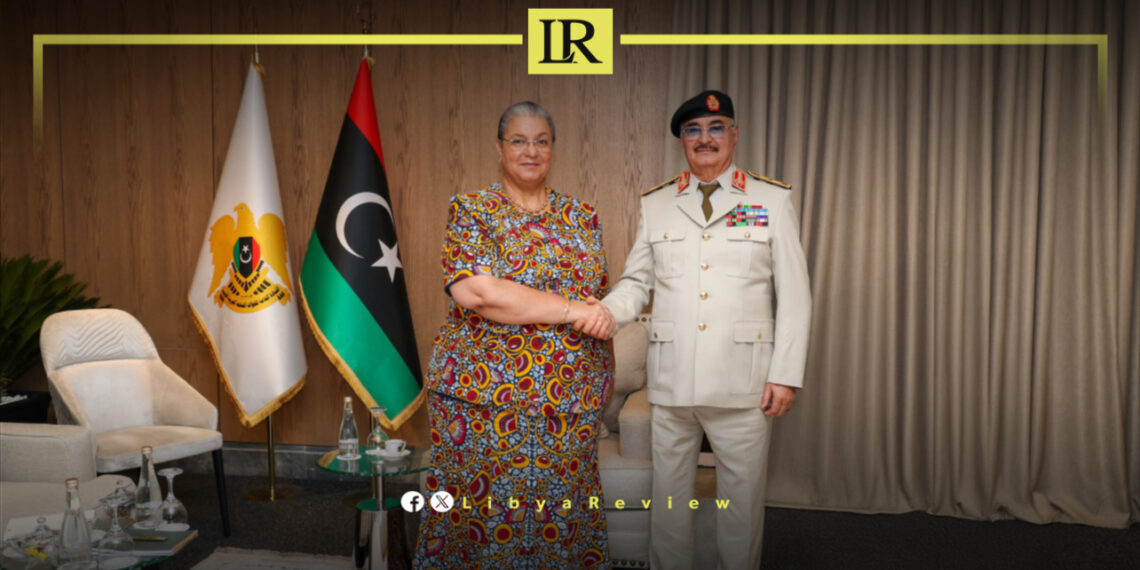On Sunday, Field Marshal Khalifa Haftar, commander of the Libyan National Army (LNA), met with UN Special Representative Hanna Tetteh in Benghazi to discuss the UN’s new political roadmap for Libya and urgent steps to prevent worsening security tensions in Tripoli.
The meeting, held at Haftar’s headquarters in Rajma, was also attended by his deputy, General Saddam Haftar, and Stephanie Khoury, UNSMIL’s Deputy Chief for Political Affairs.
According to Haftar’s media office, the talks centered on how to advance the UN-backed plan presented by Tetteh to the UN Security Council in August.
The roadmap lays out a 12–18 month process aimed at ending Libya’s political deadlock. It focuses on three main priorities: establishing a clear legal and technical framework for elections, unifying Libya’s fractured institutions through the creation of a new government, and launching an inclusive national dialogue.
Tetteh underscored that strengthening the High National Elections Commission is a critical first step, including reshaping its leadership to overcome the obstacles that derailed Libya’s planned elections in 2021.
Haftar and Tetteh also addressed the volatile situation in Tripoli, where recent clashes between rival armed groups have fueled fears of renewed conflict. Both agreed on the importance of preventing further escalation, ensuring the safety of civilians, and protecting vital infrastructure in the capital.
The latest tensions pit the Special Deterrence Force, led by Abdulraouf Kara and aligned with the Presidential Council, against factions linked to the Government of National Unity led by Abdulhamid Dbaiba.
Both sides are competing for control of key security and strategic sites in Tripoli. The Presidential Council has launched intensive consultations with armed groups and political actors in western Libya, seeking to de-escalate the situation through its Security Arrangements Committee and dialogue mechanisms.


